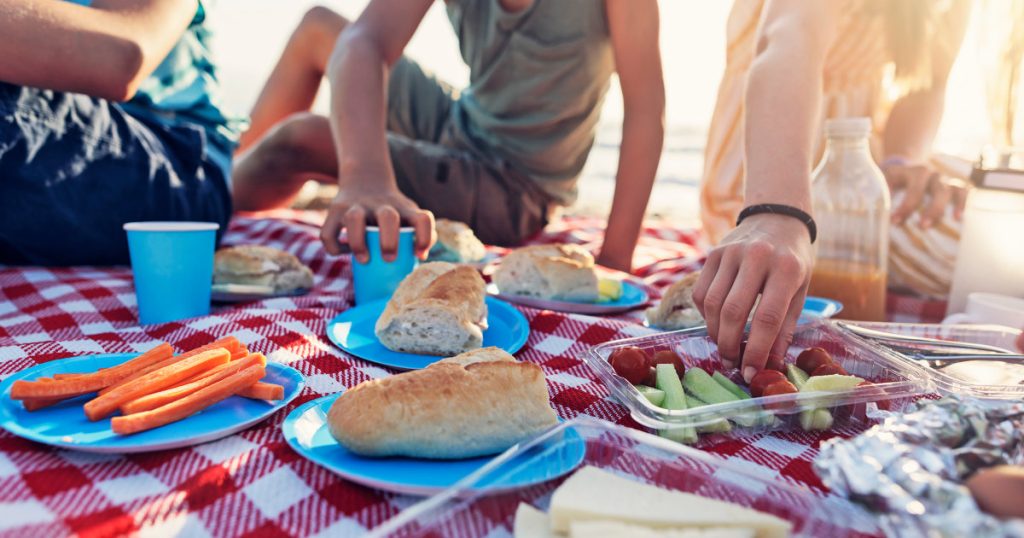During the summer months when the beach is a popular destination for barbecues and picnics, it is important to consider food safety when packing food for a day by the ocean. The hot temperatures and direct sunlight can easily spoil certain foods, leading to the growth of harmful bacteria like E. coli and salmonella. Leaving food unrefrigerated for an extended period of time can create an environment for these bacteria to thrive and cause foodborne illnesses such as diarrhea and vomiting. It is crucial to be mindful of the temperature danger zone for food storage between 40 and 140 degrees Fahrenheit to avoid potential health risks.
Certain foods should be avoided when planning a beach outing to reduce the risk of foodborne illnesses. Deli meats or cold cuts that require refrigeration, such as turkey, ham, chicken, and salami, should be kept at a safe temperature until ready to eat. Fresh salads containing fruits and vegetables can also be contaminated with harmful bacteria if not properly stored and should be consumed shortly after being removed from refrigeration. Mayo-based dishes like potato salad should be refrigerated until serving to prevent the growth of bacteria. Raw meats, such as hamburger and chicken, should be stored in a cooler below 40 degrees Fahrenheit before cooking to avoid any risk of contamination.
To ensure food safety at the beach, it is advisable to follow certain guidelines when packing and handling food. Perishable items should not be left out of refrigeration for more than two hours, or one hour if temperatures exceed 90 degrees Fahrenheit. Food should be refrigerated until ready to eat, and leftovers should be avoided by only packing what will be consumed. Raw meats should be seasoned at home and stored securely to prevent cross-contamination with other foods. Drinks should be packed separately from food to prevent exposure to warm temperatures, and coolers should be filled to capacity to maintain cold temperatures. Bringing a food thermometer for cooking at the beach can help ensure that meats reach safe internal temperatures to prevent foodborne illness.
Overall, being mindful of food safety practices while preparing and handling food for a beach outing is essential to protect against the risk of foodborne illnesses. By avoiding certain high-risk foods and following recommended guidelines for storing and handling food, beachgoers can enjoy their outdoor meals safely and without worry. Practicing good food safety habits will ensure that everyone has a fun and healthy beach experience.













